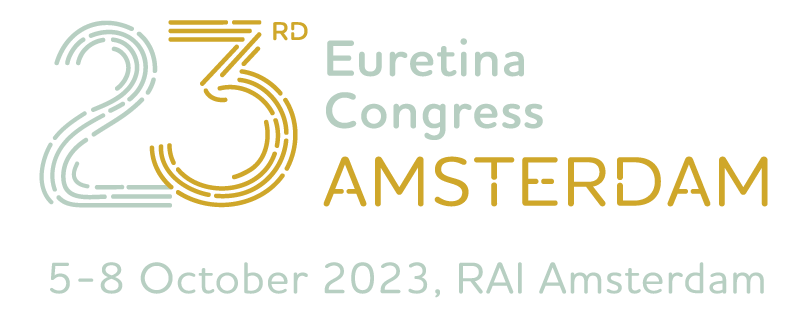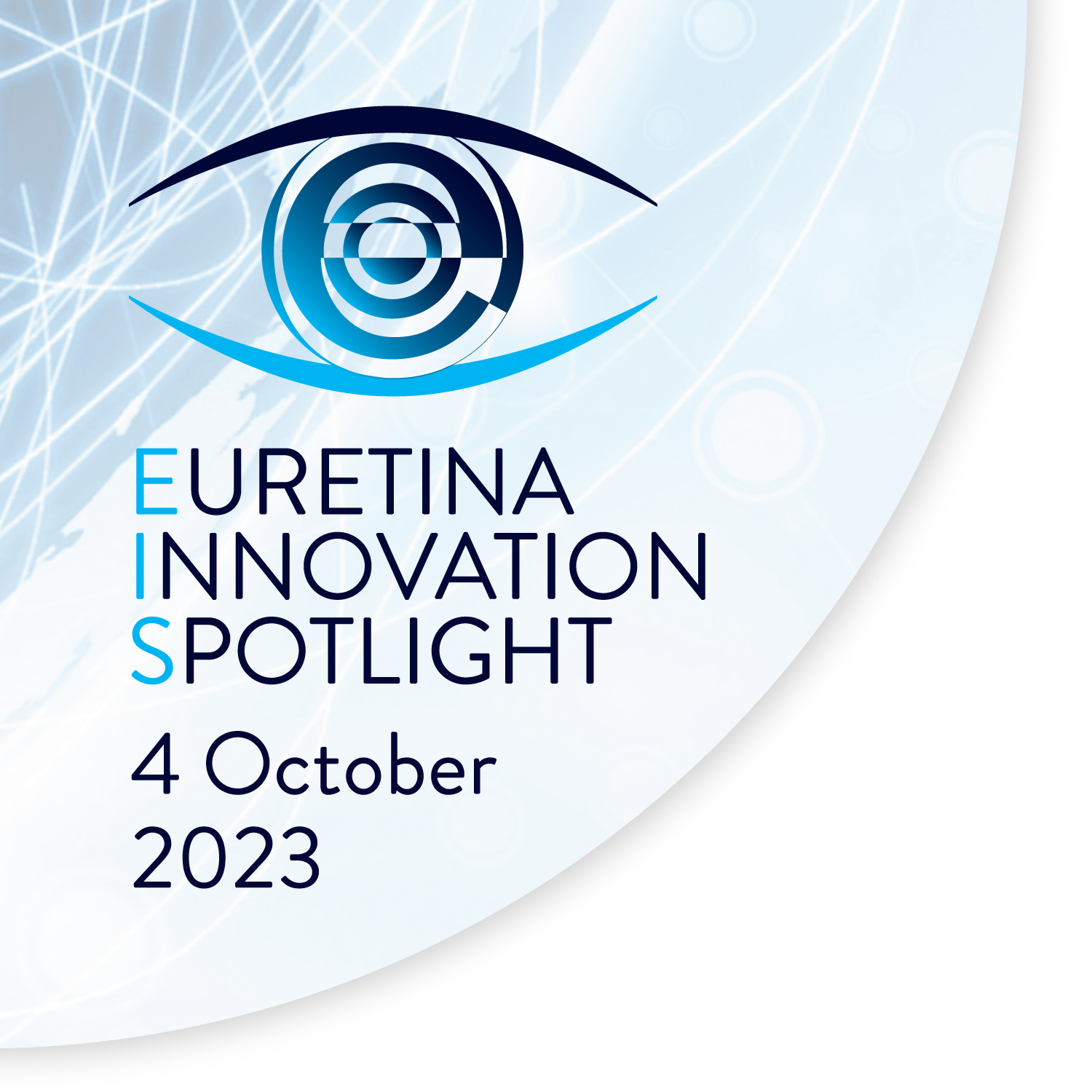Congress Sustainability Plan
Euretina is committed to improving the sustainability of our Congress and our objective is to collaborate with our supply chain and our partners to reduce our carbon footprint wherever we can. With this in mind, we are continuing with the changes we implemented last year and are adding additional elements this year to make the Congress even more sustainable than before.
These changes include:
Sustainability Plan
- Reducing the amount of printed materials we use:
- Less printed signage and more digital
- No printed programmes – all the information is on the Congress App and on digital signage in the RAI
- No printed evaluation forms – all evaluations can be done through the App
- No handouts
- No print material on the Euretina Society booth
- No Satellite symposia printed booklets
- Introducing a Sustainability Session into the congress programme which focuses on waste management and sustainability in a clinical environment.
- Selecting a venue that is aiming to be carbon neutral and has already implemented many sustainable initiatives.
- Hiring all furniture we use from the RAI Congress Centre to avoid any emissions from transportation, and to avoid buying/disposing of single use furniture.
- Using as little carpet as possible.
- Choosing sustainable materials – no polystyrene, PVC or vinyl, where possible.
- Limiting or removing all single use plastics and packaging.
- Improving our event App to provide our attendees with all the event information they need at their fingertips, without using printed resources.
- No delegate bags.
- Borrow a bike available again on a first come basis from the RAI on Thursday morning.
- Offering sustainable menus eg by choosing organic and local ingredients and minimising leftover food. Meat free lunches for satellite meetings on 2 of the days (Thursday and Saturday).
- Donating leftover food where possible (within health and safety guidelines) to the Dutch Foodbank and Salvation Army.
- Requesting a no ‘single use plastic’ rule on site – this includes plastic water bottles, disposable plastic plates/cutlery/stirrers/cups/containers/drinking straws, and condiment sachets.
- Working with event industry sustainability specialists to look at further ways we can reduce our emissions and measure our overall footprint. Last year was our baseline year and we plan to use that data to improve year on year.
Read about our sustainability efforts at Euretina 2022 Hamburg. The Hamburg Congress carbon footprint was calculated using industry best practice methodologies and the TRACE measurement tool. The data gathered in the report has determined the benchmark for future Congresses.

Exhibitors making a difference
- Reducing/eliminating print materials on their booth.
- Reducing the number of branded giveaways and printed material produced.
- Encouraging exhibition booth designers to recommend more sustainable materials, lighting ideas and branding formats to bring their space to life – design recommendations that can be used for multiple events, and the materials used that can be recycled and/or recyclable (e.g. reclaimed or recycled timber, recycled metals, projections, reusable branding/eco-friendly paint and avoiding plastic, polystyrene, composite wood and vinyl graphics).
- Booth furniture can be hired from the RAI Congress Centre to save on transportation emissions.
- If serving catering at their booth, considering plant-based menus (which can reduce catering emissions by up to 90%!), and locally sourced ingredients/drinks.
- Donation room where leftover food from the exhibitor stands is collected for charity.
- Using waste management facilities at the RAI Congress Centre and disposing of waste at the end of the event via the congress centre – we will be tracking all the waste produced at the venue which will count towards our overall event carbon footprint.
Venue making a difference
- The RAI Congress Centre uses local suppliers as much as possible. For food they work with many suppliers from Amsterdam to reduce food miles, and other suppliers are mostly inhouse or local to reduce CO2 emissions.
- Chefs try to reduce food waste as much as possible and work together with many local initiatives to achieve this.
- Many vegetarian and vegan menu options and leftover food donated to foodbanks and charities.
- By compacting all residual waste at RAI Amsterdam, there is less volume of waste, which reduces transport flows and therefore CO2 emissions.
- The RAI has a 0% landfill policy, which means 0% waste goes to landfill. 100% of their waste is recycled, reused or used to generate energy.
- Assists events in reducing waste by organizing donation rooms, programmes through which leftover items from exhibitors are donated to charity.
- The RAI is working towards being a fully circular company using the 4R principle – refuse, reduce, reuse and recycle.
- Working to minimise waste and optimise separation during event set-up and take-down.
- Through presence sensors, sustainable lighting and other solutions, the RAI is able to minimize energy consumption during the Congress.

You can make a difference
- Delegates are encouraged to bring their own refillable water bottles, which can be refilled at various locations and water stations around the venue.
- Follow waste recycling guidelines at waste stations in the RAI.
- Option to attend the Congress virtually to reduce travel emissions, and offering accessibility for those that cannot travel.
- Choosing to travel to Amsterdam by train from Europe instead of a short haul flight can reduce your travel emissions by between 70-90%. If flying is unavoidable, try to fly economy class rather than business class (flying economy has
2.6 – 4.3% lower impact per passenger compared to a business class flight). Choosing a direct flight will also save emissions. In addition, you can choose to offset your CO2 flight emissions. - Amsterdam has an excellent public transport network and both the RAI and Europaplein stations are a 2 minute walk from the Congress Centre. Connections from here to elsewhere in the city are frequent and numerous.
- The RAI Station is 10 minutes away from Schiphol and has direct train connections to Schiphol Airport.
- When you’re in Amsterdam try to avoid taxis, and instead use the network of public transport in the city – or even better take a walk or a bike ride! If taxis are unavoidable, try to car share with other delegates.




